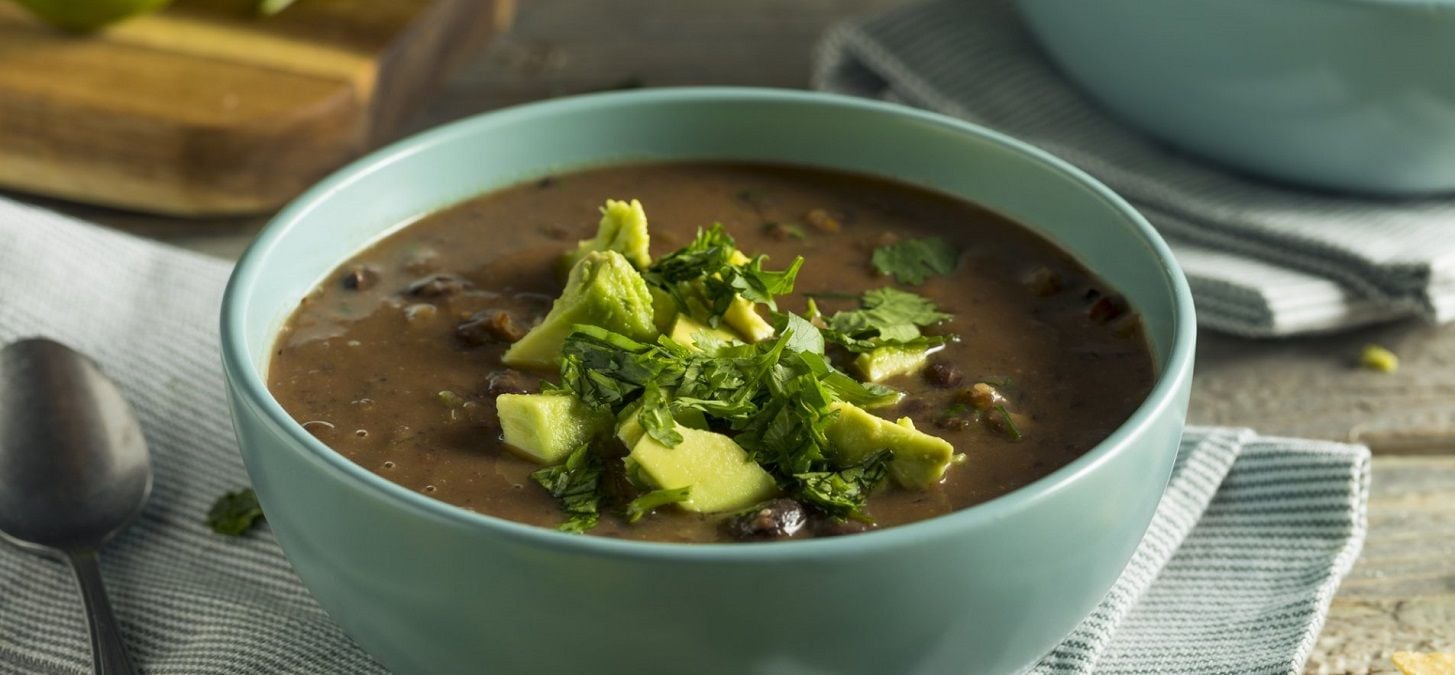Why black beans are essential for diabetics, heart patients, and those looking to lose weight.
Among the various types of beans, black beans hold a special place as they are an exceptionally valuable source of vitamins and minerals, positively impacting the body. Regular consumption of these beans supports gut health, heart function, helps regulate blood glucose levels, normalizes blood pressure, and contributes to skin elasticity and firmness, among other benefits.
Nutritionist Andriy Makovetskyi will now explain the rich nutrient profile of black beans, why they should be included in a balanced diet, their medicinal properties, and will share interesting recipes featuring black beans.
Who particularly benefits from black beans?
1. Rich in fiber. Black beans are high in both soluble and insoluble fiber, which aids in normalizing digestion, preventing constipation, and helps lower levels of "bad" cholesterol (LDL), thereby reducing the risk of cardiovascular diseases.
2. A source of protein. In 100 g of black beans, there are about 8-9 g of protein. This is a quality plant-based protein that is important for muscle tone and tissue repair, especially for vegans and vegetarians.
3. A source of vitamins and minerals. Black beans are rich in magnesium, iron, potassium, zinc, and B vitamins (folic acid, thiamine), which support the health of the nervous system, heart, circulatory system, and bones.
4. Antioxidant properties. Black beans contain anthocyanins—powerful antioxidants that help combat oxidative stress and reduce the risk of chronic diseases such as cancer and diabetes. Antioxidants also help fight free radicals that can damage skin cells and contribute to premature aging. Additionally, the protein content in black beans supports collagen production, enhancing skin elasticity and firmness.
5. Regulates blood sugar levels. Due to their low glycemic index (GI) and fiber content, black beans help stabilize blood glucose levels, which is especially beneficial for individuals with type 2 diabetes.
6. Helps maintain a healthy weight. Studies show that consuming legumes, including black beans, helps maintain a healthy weight and prevents obesity due to their low calorie content and high satiety.
7. Supports brain health and cognitive functions. The folic acid and magnesium content in black beans supports brain health and cognitive functions. Folic acid plays a crucial role in neurotransmitter function, while magnesium is necessary for nerve transmission and muscle contraction.
How to best incorporate black beans into your diet?
They can be used to prepare salads, soups, flavorful sauces, pasta, and spreads. Black bean puree can serve as a base for vegetarian burgers and patties, among other dishes. Nutritionist Andriy Makovetskyi shares recipes for delicious and healthy meals that even beginners can easily prepare.
Black Bean Burrito
Ingredients (for 2 servings):
- cooked black beans — 200 g
- whole grain tortillas (or thin lavash) — 2 pcs.
- avocado — 1 pc.
- tomatoes — 2 pcs.
- red onion — 1/2 pc.
- cilantro — 1/2 bunch
- lemon juice — 1 tbsp.
- paprika, cumin, salt — to taste

Preparation method:
Mash the avocado with a fork, add lemon juice, salt, and mix. In a skillet, lightly heat the beans with spices (paprika, cumin, salt). Chop the tomatoes, onion, and cilantro, then layer the beans on the tortilla, followed by avocado, vegetables, and herbs. Roll it up and serve.
***
Black Bean Cream Soup
Ingredients (for 2 servings):
- cooked black beans — 300 g
- vegetable broth — 500 ml
- onion — 1 pc.
- garlic — 2 cloves
- olive oil — 1 tbsp.
- lime juice — 1 tbsp.
- paprika, cumin, salt — to taste
- avocado, cilantro (for serving)

Preparation method:
First, heat the olive oil and sauté the finely chopped onion and garlic. Add the beans, spices, and heat for 2 minutes. Pour in the vegetable broth, bring to a boil, and cook for 10 minutes, then blend until smooth. Serve the cream soup with diced avocado, cilantro, and a splash of lime juice.
***
Black Bean Buddha Bowl
Ingredients (for 2 servings):
- cooked black beans — 200 g
- quinoa — 150 g
- roasted pumpkin — 150 g
- avocado — 1 pc.
- fresh spinach — 100 g
- lemon juice — 1 tbsp.
- olive oil — 1 tbsp.
- tahini (sesame paste) — 1 tbsp.
- salt, pepper — to taste

Preparation method:
Prepare the quinoa according to the package instructions. Roast the pumpkin in the oven at 200°C for 20 minutes. In a deep bowl, layer spinach, quinoa, beans, pieces of pumpkin, and sliced avocado. Separately prepare the dressing by mixing olive oil, tahini, lemon juice, salt, and pepper. Drizzle the sauce over the bowl and serve immediately. Enjoy!
Important!
This material does not contain medical advice or treatment recommendations and fully aligns with current scientific research. If you have health concerns, please consult a doctor.